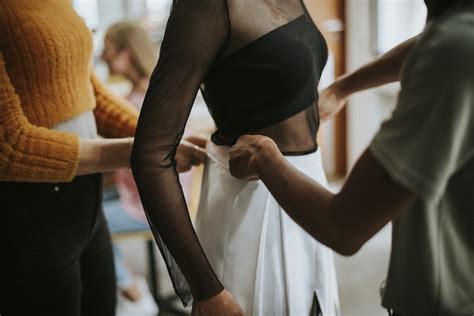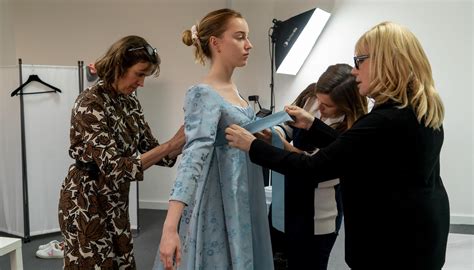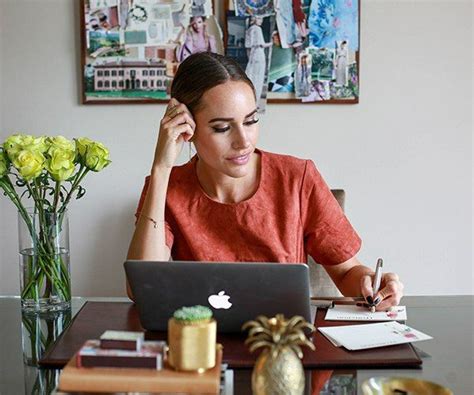Fashion Designer Career Options: Exploring the World of Style
Are you passionate about fashion? Do you have an eye for trends, colors, and fabrics? If so, a career in fashion design might be your calling. The fashion industry is a dynamic and ever-evolving field that offers a plethora of exciting career options for creative individuals. In this article, we will explore the various paths you can take to carve out a successful career as a fashion designer.
1. Fashion Designer

Being a fashion designer is the epitome of the fashion industry. This role involves creating unique and trendsetting designs for clothing, accessories, and footwear. As a fashion designer, you will research fashion trends, sketch designs, select fabrics, and oversee the production process. It requires a blend of creativity, technical knowledge, and a keen sense of style.
2. Fashion Illustrator

Fashion illustrators bring fashion ideas to life through their artistic skills. They create detailed and visually appealing illustrations of garments, accessories, and fashion concepts. These illustrations are used by fashion designers, retailers, and manufacturers to communicate their ideas. If you have a knack for drawing and a passion for fashion, becoming a fashion illustrator might be the perfect fit for you.
3. Fashion Stylist

Do you have a talent for putting together stunning outfits? As a fashion stylist, you will work with individuals, brands, or magazines to create visually appealing looks. You will select clothing, accessories, and props to create a desired image or style. Fashion stylists often collaborate with photographers, models, and makeup artists to bring their creative visions to life.
4. Fashion Merchandiser

Behind every successful fashion brand, there is a fashion merchandiser who ensures the right products reach the right customers at the right time. Fashion merchandisers analyze market trends, develop pricing strategies, plan product assortments, and coordinate with manufacturers and retailers. This career option requires a blend of business acumen and fashion knowledge.
5. Fashion Buyer

If you have a passion for shopping and a great sense of style, becoming a fashion buyer might be your dream job. Fashion buyers are responsible for selecting and purchasing the apparel and accessories that will be sold in retail stores or online platforms. They must have a deep understanding of consumer preferences, market trends, and the ability to negotiate with suppliers.
6. Costume Designer

If you have a flair for theatrics and love the world of performing arts, a career as a costume designer could be the right choice. Costume designers create outfits and costumes for theater, film, television, and other live performances. They collaborate closely with directors, actors, and production teams to ensure that costumes align with the overall vision of the production.
7. Fashion Journalist

If you have a passion for writing and a keen interest in fashion, a career as a fashion journalist might offer the perfect blend of your passions. Fashion journalists report on fashion trends, interview designers and industry professionals, and write articles for magazines, newspapers, or online publications. They keep the public informed about the latest fashion news and provide insightful commentary.
8. Fashion Photographer

A picture is worth a thousand words, and in the world of fashion, compelling visuals are everything. Fashion photographers capture stunning images of models, clothing, and accessories for advertisements, editorials, and campaigns. They work closely with stylists, makeup artists, and models to create visually striking compositions that convey the essence of the brand or designer.
Conclusion
The world of fashion offers a vast array of career options for creative individuals. Whether you choose to become a fashion designer, stylist, merchandiser, or any other role in the industry, the opportunities are endless. Pursuing a career in fashion allows you to express your creativity, stay up-to-date with the latest trends, and contribute to the ever-evolving world of style.
Frequently Asked Questions (FAQs)
1. What education do I need to become a fashion designer?
To become a fashion designer, it is recommended to pursue a bachelor’s degree in fashion design or a related field. Additionally, gaining hands-on experience through internships and building a strong portfolio will greatly enhance your chances of success in this competitive industry.
2. Can I become a fashion designer without formal education?
While a formal education in fashion design can provide valuable knowledge and skill development, it is not the only path to becoming a fashion designer. Some designers have achieved success through self-study, apprenticeships, and sheer talent. However, formal education can provide a strong foundation and open doors to better opportunities.
3. Are fashion careers only limited to big cities?
No, fashion careers are not limited to big cities alone. While major fashion hubs like New York, Paris, and Milan offer more opportunities, the fashion industry has a global presence. With the advent of e-commerce and digital platforms, fashion professionals can work remotely or find opportunities in smaller cities as well.
4. How can I stay updated with the latest fashion trends?
Staying updated with the latest fashion trends requires continuous learning and observation. Follow fashion blogs, read fashion magazines, attend fashion shows, and explore social media platforms to keep an eye on emerging trends. Networking with industry professionals and joining fashion communities can also provide valuable insights.
5. Is the fashion industry sustainable?
The fashion industry has been facing increasing scrutiny regarding sustainability and ethical practices. However, there is a growing awareness and efforts being made towards sustainable fashion. Designers and brands are incorporating eco-friendly practices, ethical sourcing, and promoting slow fashion. As a fashion professional, you can contribute to sustainable practices and make a positive impact on the industry.
Post Views: 133